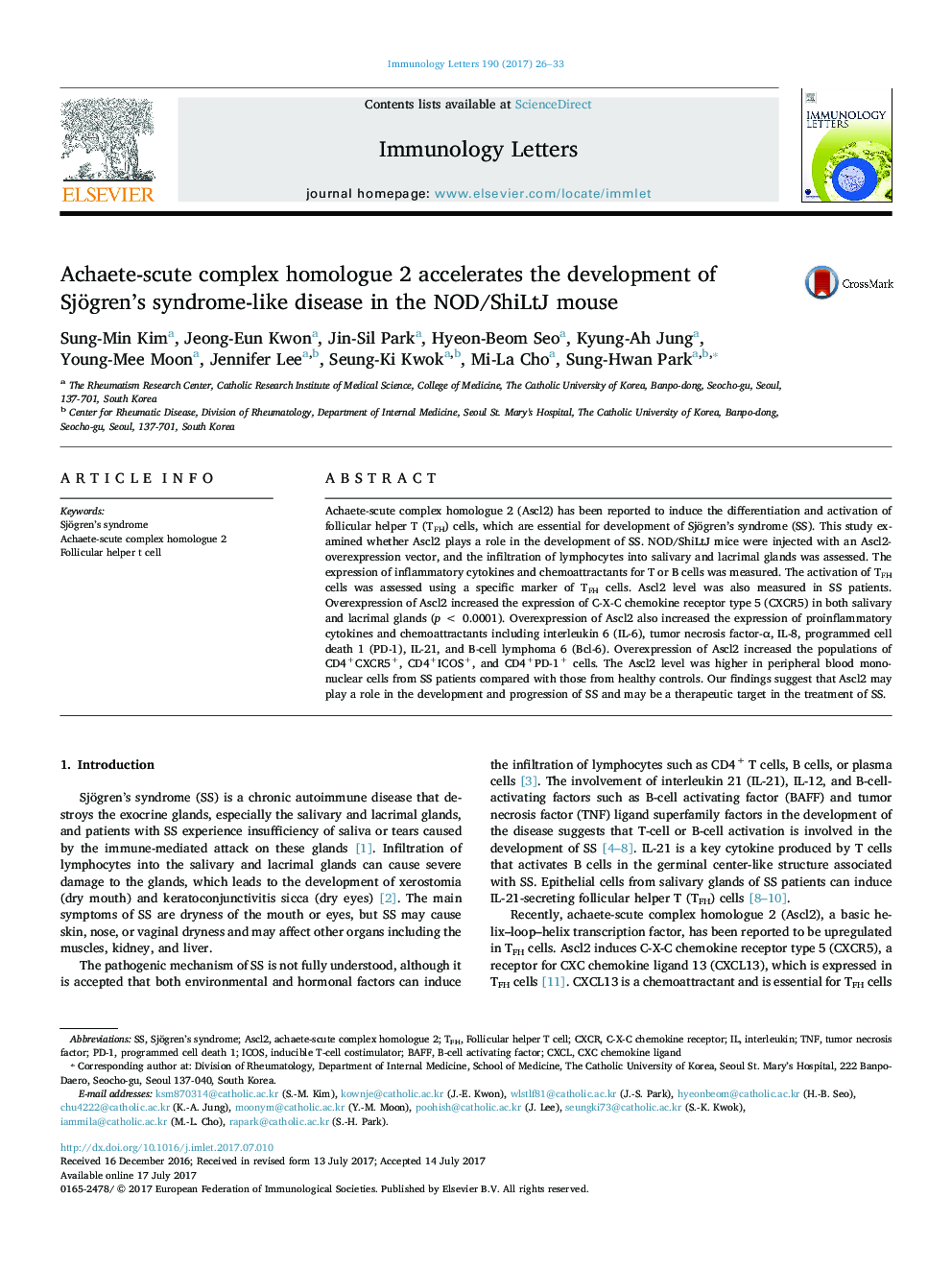| Article ID | Journal | Published Year | Pages | File Type |
|---|---|---|---|---|
| 5666556 | Immunology Letters | 2017 | 8 Pages |
â¢The Overexpression of Ascl2 increase the infiltration of lymphocyte in salivary and lacrimal glands.â¢The development of TFH cells and Sjogren's syndrome were accelerated by Ascl2 overexpression.â¢The level of Ascl2, IL-21 and Bcl6l were higher in peripheral blood mononuclear cells from SS patients compared with those from healthy controls.â¢Our findings suggest that Ascl2 may play a role in the development and progression of SS and may be a therapeutic target in the treatment of SS.
Achaete-scute complex homologue 2 (Ascl2) has been reported to induce the differentiation and activation of follicular helper T (TFH) cells, which are essential for development of Sjögren's syndrome (SS). This study examined whether Ascl2 plays a role in the development of SS. NOD/ShiLtJ mice were injected with an Ascl2-overexpression vector, and the infiltration of lymphocytes into salivary and lacrimal glands was assessed. The expression of inflammatory cytokines and chemoattractants for T or B cells was measured. The activation of TFH cells was assessed using a specific marker of TFH cells. Ascl2 level was also measured in SS patients. Overexpression of Ascl2 increased the expression of C-X-C chemokine receptor type 5 (CXCR5) in both salivary and lacrimal glands (p < 0.0001). Overexpression of Ascl2 also increased the expression of proinflammatory cytokines and chemoattractants including interleukin 6 (IL-6), tumor necrosis factor-α, IL-8, programmed cell death 1 (PD-1), IL-21, and B-cell lymphoma 6 (Bcl-6). Overexpression of Ascl2 increased the populations of CD4+CXCR5+, CD4+ICOS+, and CD4+PD-1+ cells. The Ascl2 level was higher in peripheral blood mononuclear cells from SS patients compared with those from healthy controls. Our findings suggest that Ascl2 may play a role in the development and progression of SS and may be a therapeutic target in the treatment of SS.
